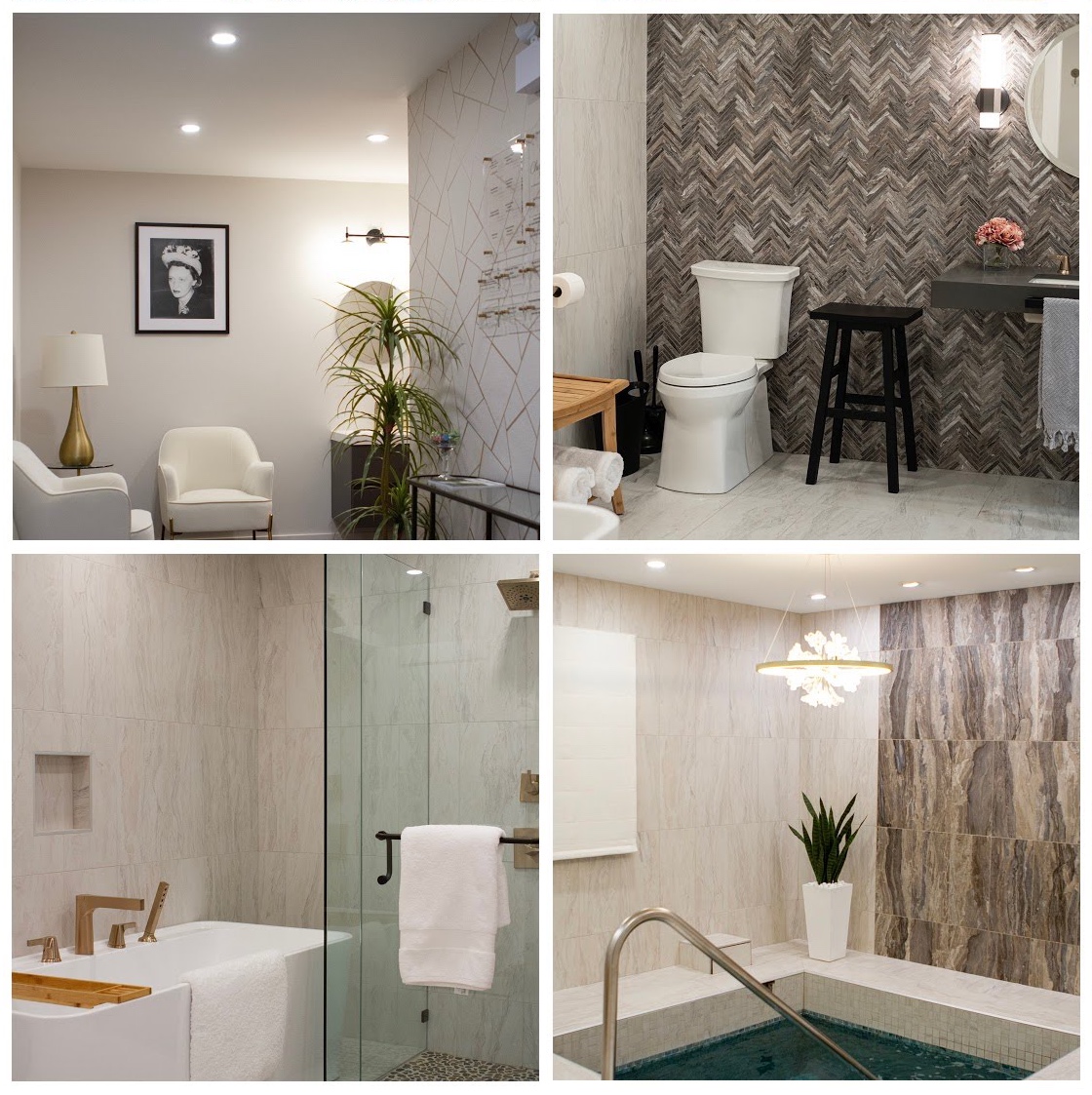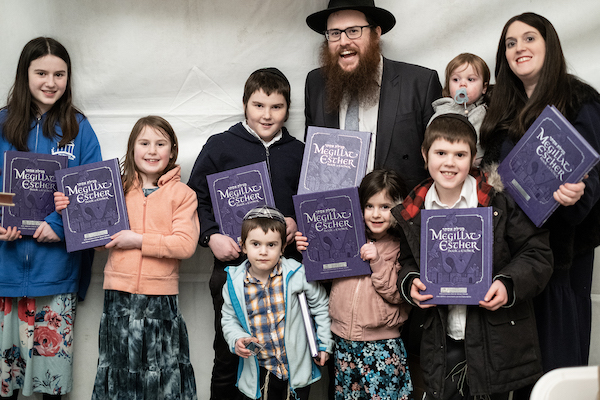Okanagan Chabad House’s Rabbi Shmuly and Fraidy Hecht with their family. (photo from Okanagan Chabad)
For almost three months now, residents of Kelowna have had the opportunity to participate in the mitzvah of mikvah, following the completion at the Okanagan Chabad House of the ritual bath, the first to be built in the British Columbia Interior.
“Just having the physical edifice implanted in the earth of the city of Kelowna already emits holy energy and divine blessing to all the inhabitants of this city,” Rabbi Shmuly Hecht said following the Feb. 21 (Rosh Chodesh Adar 5783) opening of Mikvah Chaya Mushka.
“In addition to that, families – by bringing this age-old unifying and beautiful part of our heritage into their home – enhance the home. They bring the light and the warmth of Judaism and its impact into the home, into the marriage and the relationship between children and parents,” he said. “Many beautiful stories concerning our mikvah have already happened.”
Before this year, women in Kelowna needed to travel hundreds of kilometres to larger cities, such as Vancouver or Calgary, to participate in the mikvah ritual. The costs for some were substantial, both in money and time.
The story of the new Kelowna mikvah goes back to 2019, when Hecht started considering means to raise funds – together with rabbis at other Chabad centres in smaller-sized cities throughout North America, who also wanted to build mikvahs for their communities.
With the other rabbis – who were based in Regina and Saskatoon, Sask.; Fargo, N.D.; Mobile, Ala.; Salem, Ore.; and Arcata, Calif. – Hecht hoped to collect about $1.5 million US for the seven mikvahs.
Initially, their efforts to find donors and philanthropists did not yield the results they sought. After a few months, the group decided to announce their goals more publicly, and therein was launched the Bring Mikvah Home campaign.
More than a thousand people in Jewish communities from New York to Sydney, and scores of places in between, contributed to the cause, in sums, according to Hecht, ranging from $5 to $5,000.
“They were people from all corners of the world who had never heard of us and never met us, yet they are Jewish and they know every community needs a mikvah, so they were willing to give their funds to support us. And that is one of the most inspiring things in this campaign,” he said.
When the donations were finally tabulated, the seven rabbis had reached their goal. Yet, there would be another hurdle for Hecht in the effort to complete the Kelowna mikvah. At the height of COVID, as they were ready to build, the contractor increased the cost estimate of the project.
Thus, the Kelowna contingent started a second campaign, called Finish the Mikvah, and raised $46,000 in that process. Hecht credits his wife, Fraidy, as instrumental in guiding the project through this last phase and towards fruition.
“My wife took it upon herself to be the contractor of the project, while juggling being the mother of seven children, who are home-schooled, and all the responsibilities, including being the program director and everything else she does at the centre,” the rabbi said. “She was working tirelessly as the contractor for hiring all the trades. She was on the ground every day, dealing with the city and the tradespeople on a daily basis. I don’t know how she did it. She saved us thousands.”

To Hecht, the importance of the Kelowna mikvah cannot be overstated. He explained that the mikvah, it is believed, connects each woman and her family to their innate spirituality, bringing blessings to themselves and those around them; water has the power to purify, restore and replenish life.
“In Jewish law, a community has to build a mikvah before a shul. The future is dependent on mikvah,” Hecht said.
Hecht, too, seeks to dispel the notion that a mikvah is something to be used only by religious Jews.
“There are people who are not observant who have used the mikvah. It is for every Jew,” he said. “There is no label. There are many families in Kelowna learning about mikvah who have used it. It is not religious. It is a foundation of Judaism. It is something that every Jew should have – the opportunity to bring this holiness and beauty to their life.”
Hecht compared the challenges of building the mikvah to settling in the B.C. Interior more than 12 years ago and starting a Chabad centre. At that time as well, he said, he needed determination, vision and a belief that his goals would be achieved – and he needed the assistance of others.
“I learned from my father that, whenever you do something good, try to bring in someone else to bring in more blessing,” he said. “Our whole life is how can we go and service Jewish people … that don’t have the availability, the resources or the opportunities to have a Jewish education at their doorstep, such as having a rabbi to speak to locally, and a feeling of closeness and support within a Jewish community.”
Sam Margolis has written for the Globe and Mail, the National Post, UPI and MSNBC.

